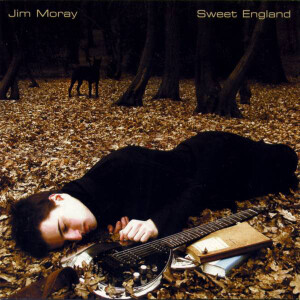 Lenora Rose contributed this review.
Lenora Rose contributed this review.
I had just managed to wheedle the editor into letting me review this CD a day or two before the BBC Radio 2 2004 Folk Award Winners were announced — and Jim Moray collected both the Best Album award and the Horizon award for best new performer. I thought my timing impeccable.
The album does live up to its acclaim, though it might throw a listener for a loop if they’re expecting his renditions of traditional English ballads to be familiar or entirely comfortable. The songs he chooses are mostly very familiar; June Tabor has sung “Lord Bateman,” “April Morning” and others, and groups as diverse as Maritimers the Irish Descendants and Californian Celtic rockers Tempest have played with fast wild versions of “Gypsies” (also known as “The Raggle-Taggle Gypsy”).
Indeed, Jim opens with a pleasant fiddle line, introducing “Early One Morning,” considered by many the hoariest of hoary old folk songs. And for the first two verses, his rendition is pretty standard folk; well done, but not startling. Then the techno pulse kicks in, and a reverb on his voice, and the song really takes off.
If I heard someone describe a folk song and use the words techno and reverb, I’d probably sidle the other way as quickly as possible. Knowing that techno can be done well doesn’t prevent me from being prejudiced sharply in its disfavour, perhaps because bad techno’s most common flaws tend to grate on me worse than those of many other styles of music.
In Jim’s hands, it soars, and part of the reason is that he knows never to overwhelm the music with the effects. Throughout the album there are other bits of reverb, and sampling, and echo, but always in touches, like punctuation. The rest of the time, his play with multiple instruments is allowed to shine through on its own. Likewise his splendid voice, which is saved from an excess of prettiness only by a touch of youth. I can’t wait to see how it matures.
“Early One Morning” makes a good summary of what Jim is up to with the rest of Sweet England; there’s excellent rock and folk here, as well as the techno and electronica and other unexpected touches. And those aspects meld together with fewer seams than you’d expect.
“Lord Bateman” makes good use of keyboard effects not possible on a piano, and a (probably sampled) soprano wail in the instrumental breaks. But in essence, it’s a gentle love story about sailing the seas, daring rescues from prison, and journeys to distant countries, and Jim plays it straight enough to let the story and voice both shine out. Purists may note a few verses were edited, and a subplot about an arranged marriage is lost, but to my ear, this is a case of the folk process at work, not of heedless cutting.
By contrast, “Seeds of Love,” set to a new tune, mixes itself into busy layers and strange keys; it’s one of the few songs where the vocals are nearly swamped. There are days it’s not to my taste, and days I like it very much.
“Gypsies” took a few listenings to get used to. It’s slowed down from most traditional and rock takes, and the guitar breaks tease you by starting to quicken pace, then pulling themselves back. The tension is upped by this deliberate restraint, just as an angry man is more frightening, or a passionate one sexier, for the same restraint. The horns, played ably by Leo Alterelli, keep the slow spaces from feeling hollow, but they might also weaken some of that same tension. When Jim does this live, alone with his electric guitar, it does seem to be missing something; I’m not sure the horns are the solution I would have chosen, but they do sound very good. When one of the best aspects of this album is the balance between fresh ideas and familiar, I won’t fault any experiment for being something I would never have considered.
The album closes with “Longing for Lucy,” an original song more in line with most (good) singer-songwriter material than with the classic ballad tunes. But the lyrics are as disturbing and accessible as those of the better ballads, for all that the picture they paint is current-day. It’s departure enough even from the rest of the album, whose attitude is all about old and new together, that it took a while to warm to it, but mostly because I wasn’t listening at first to what the words were saying.
There are weaker tracks. “Seeds of Love” I already mentioned as very mood dependant. But the title track is shakier overall, the foreground and background given too-equal attention. But I adore everything about his rendition of “Two Sisters,” from the hint of circus music drifting through the sinister main, to his choice of an ending (out of the many by other artists) where the villains seem to get away with their actions. I could talk about every song with at least some praise, from the a capella “Week Before Easter,” to, yes, even Sweet England’s overemphasized but very pretty instrumentation.
Suffice to say, I was very happy at the outcome of the BBC Radio 2 Folk Awards. I was cheering Jim Moray all the way.
(Niblick is a Giraffe, 2003)
